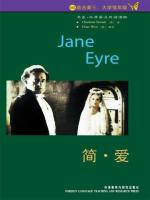Reflections and Revelations
ZHXA
Reflections and Revelations from Jane Eyre Charlotte Brontë’s Jane Eyre
is a revolutionary literary work that transcends its 19th-century
origins, offering timeless insights into gender, class, and the human
quest for dignity and love. Through the journey of its eponymous
protagonist, the novel challenges societal norms, explores the
complexities of human nature, and resonates deeply with readers by
highlighting universal struggles for identity and independence. As I
delved into Jane’s story, I discovered profound lessons that remain
relevant in contemporary society. At the heart of Jane Eyre lies the
protagonist’s unwavering pursuit of equality and self-respect. From her
harsh childhood at Gateshead Hall, where she endures abuse and isolation
as an orphan, to her time at Lowood School, which exposes her to
institutional cruelty, Jane’s early life is marked by oppression. Yet,
rather than succumbing to despair, she develops a fierce spirit of
resistance. When confronted by her cousin John Reed, she declares,
“Wicked and cruel boy! You are like a murderer—you are like a
slave-driver—you are like the Roman emperors!” This outburst not only
defies the strict Victorian code of child obedience but also foreshadows
her lifelong battle against injustice. Jane’s tenacity teaches us that
standing up for oneself, even in the face of overwhelming power, is
essential for preserving one’s dignity. The novel’s exploration of love
and relationships offers a nuanced perspective on the nature of true
partnership. Jane’s relationship with Mr. Rochester, the brooding master
of Thornfield Hall, is both passionate and tumultuous. Unlike many
heroines of her time, Jane refuses to sacrifice her principles for love.
When Rochester proposes a bigamous marriage, she refuses, stating, “I am
no bird; and no net ensnares me: I am a free human being with an
independent will.” This decision, made despite her deep affection for
Rochester, underscores her commitment to moral integrity and equality
within a relationship. In an era where women often married for economic
security, Jane’s choice challenges conventional gender roles and
emphasizes the importance of mutual respect and autonomy in love. It
reminds modern readers that healthy relationships should be built on a
foundation of equality, not submission. Moreover, Jane Eyre serves as a
scathing critique of Victorian society’s rigid class structure. Jane,
born into poverty and orphaned at a young age, constantly navigates the
barriers imposed by social hierarchy. Her role as a governess at
Thornfield Hall exemplifies the liminal position of women in the 19th
century: educated yet economically dependent, respected yet socially
marginalized. Through Jane’s experiences, Brontë exposes the hypocrisy
of a society that values wealth and status over personal character. St.
John Rivers, another significant character, represents the cold
rationality of the upper class. His proposal to Jane, based on
practicality rather than love, highlights how societal expectations
often overshadow individual desires. This aspect of the novel prompts
reflection on how class and gender intersect to limit opportunities,
urging us to question and challenge systems that perpetuate inequality.
Another powerful theme in Jane Eyre is the search for identity and
belonging. Throughout the novel, Jane grapples with questions of who she
is and where she fits in the world. Her experiences at Lowood School,
where she learns to suppress her emotions to conform, and at Moor House,
where she briefly finds familial acceptance, illustrate her ongoing
struggle. The revelation of her inheritance from her uncle John Eyre not
only provides financial independence but also offers a sense of identity
rooted in family history. However, it is Jane’s return to Rochester,
after he has been humbled by tragedy, that truly completes her journey.
This reunion symbolizes her ability to reconcile her need for love with
her commitment to selfhood, demonstrating that true belonging arises
from embracing one’s authentic self while forming meaningful connections
with others. On a personal level, Jane Eyre has profound implications
for contemporary readers. In a world still grappling with gender
inequality, racial discrimination, and class divisions, Jane’s story
serves as a call to action. Her courage in challenging injustice, her
refusal to compromise her values, and her pursuit of a balanced life
between passion and principle inspire us to confront our own societal
biases and strive for a more just world. Whether in the context of
personal relationships or broader social issues, Jane’s example reminds
us that integrity and self-respect are non-negotiable. In conclusion,
Jane Eyre is a literary masterpiece that continues to captivate and
educate readers across generations. Charlotte Brontë’s exploration of
themes such as gender equality, class struggle, and the search for
identity offers timeless wisdom and enduring relevance. Through Jane’s
indomitable spirit, we are reminded of the power of resilience, the
importance of authenticity, and the timeless quest for love and respect
on our own terms. This novel not only entertains but also challenges us
to reflect on our values, question societal norms, and strive for a more
compassionate and equitable world.



 京公网安备 11010802032529号
京公网安备 11010802032529号